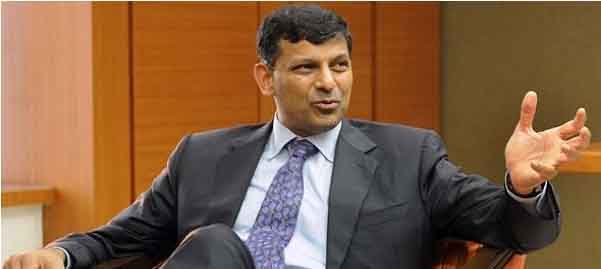“Today we are driving our society towards a state of complete domination by western thought, science, technology and systems, thereby completely subjugating our people and their environment and civilisation in chains of bondage….If we wish to change this, then we have to begin to create a new India on the basis of the traditions, beliefs, knowledge systems and the nature of the people of our civilisation. We must decide to abandon the colonial systems and devices, with immediate effect.”– Rediscovering India,
Acharya Dharampal, Society for Integrated Development of Himalayas, Mussoorie, 2003, pp. 214-15
Bharat is ‘dangerously close’ to the Hindu growth rate, remarked Raghuram Rajan, former Governor of the Reserve Bank of Bharat. He was referring to the sequential slowdown in quarterly growth, as revealed by the latest estimate of national income released by the National Statistical Office (NSO). The State Bank of India (SBI), in its Ecowrap report, dismissed Rajan’s argument as “ill-conceived, biased and premature”. Only time will tell whether the Bharatiya economy is showing positive trends as claimed by SBI based on ‘recent GDP numbers against the available data on savings and investments’. But the fact remains that the entire world sees Bharat as the ‘bright spot’ in the post-COVID-19, Ukraine-Russia war embroiled world. The stagnated secular socialists like Rajan exhibit their Hindu hatred using ill-conceived, derogatory terms.
Though BPR Vithal, under the pseudonym Najin Yanupi, for the first time equated Hindu Dharma with slow economic growth in 1973, the term ‘Hindu Rate of Growth’ was popularised by agriculture economist from Delhi School of Economics Prof Raj Krishna by using the erroneous cliché in his lecture. He was a staunch opponent of the Nehruvian socialism characterised by ‘license-permit-quota-raj’. Therefore, in 1978, he chose the term’ Hindu Rate’ to label the slow economic growth rate from the 1950s to 1970s. The slow economic growth rate hovering around 3.5 per cent was attributed to the Hindu philosophy of Bhagya and Karma, fatalists and contented.
The Nehruvian socialism had nothing to do with Hindu principles and ideas; even Nehruvians would accept that. Then why did a person with Western liberal ideas equate another Western fad called socialism with Hindu Dharma? Pakistan is facing another economic crisis, but the phenomenon is never termed an ‘Islamic’ growth rate. Many European countries have been going through cycles of stagnation and negative growth rate – not called a Christian growth rate. Then what is the reason behind maligning the oldest and open civilisation? The answer is ‘secular mindset’. For both the Western prisms and Abrahamic religions, Hinduphobia is inherent. Branding anything Hindu as regressive, parochial, fatalist and communal is their basic presumption for getting recognition as a scholar.
As Angus Maddison, a famous British economist, meticulously traced and presented in the OECD report, Bharat had been the world’s economic giant for 2,000 years. Sharing the top two slots in economic growth with China, Bharat had the highest share of the world’s GDP at nearly 25 per cent from 1 CE to 1700 CE. At some point, that share touched upon the one-third proportion of the global economic share. Many travelogues and testimonies of scholars visiting glorious Hindu empires like Vijayanagar verify these facts. That was the real Hindu growth rate, and we should proudly strive to achieve the same.
The colonial loot through the drain of resources led to the decline of Bharat’s growth trajectory. As Dharampal Ji revealed through his magnificent research based on British documents, colonial exploitation destroyed the Bharatiya social, educational, industrial and legal structures. The colonisation of the minds of our elite is the worst legacy which the British have left. The Nehruvians then and now represent the same colonial psyche. Former RBI Governor represents this class. Hence, as the RBI Governor, he had issues with the Modi Government’s flagship schemes and policies like ‘Make in India’, Jan Dhan Yojana and demonetisation. Raghuram Rajan’s every prediction about Bharat, whether about COVID-19 management or economic recovery, has gone wrong. Therefore, his laughable comments will not find any ground in the battle of narratives. While discrediting him, there is a need to debunk this fraudulent concept of the Hindu growth rate once and for all.




















Comments